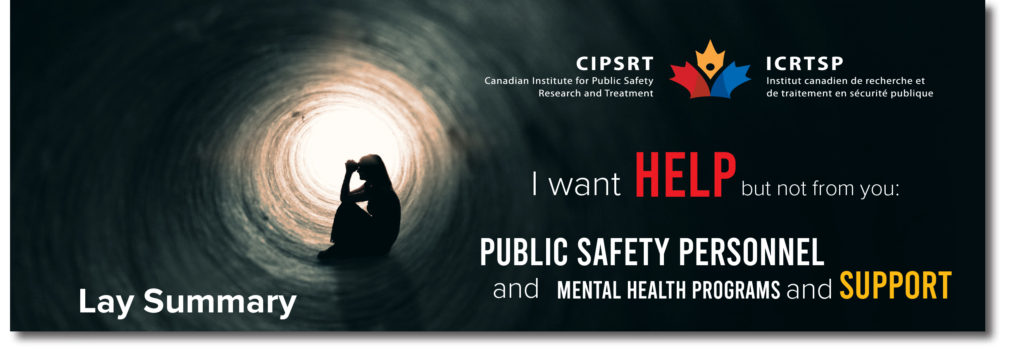Research Summaries

Why was the study done?
Mental health supports for public safety personnel (PSP) are necessary as they are likely to experience traumatic events in their work; however, there is little evidence to explain what helps PSP who are facing mental health challenges. Mental health training programs (e.g., critical incident stress management, debriefing sessions, peer support, mental health first aid) may help to reduce the effects of exposures to traumatic events. PSP may also seek help from professionals (e.g. physicians, psychologists, psychiatrists, chaplains), work-related resources (employee and family assistance plans, leadership teams), and other informal sources of support (spouses, friends, colleagues).
What was done in the study?
PSP, recruited through their employers, organizations, or public announcements, participated in an online survey that assessed mental health symptoms and invited open-ended feedback. PSP were asked about their experiences with mental health training, their attitudes about mental health, and the types of assistance they were willing to access if they had a workplace mental health problem.
What did we find?
- PSP are most willing to reach out to spouses and friends for help with mental health problems.
- Most PSP reported being unwilling to use employee assistance programs or to speak with their leaders about mental health problems, which was consistent with previous reports about workplace stigma.
- Participation in mental health training appeared to have a small effect on PSP willingness to ask for help.However, most PSP reported that they do have access to professional mental health resources.
- Participation in mental health training was associated with fewer PSP screening positive for mental health disorders, such as post-traumatic stress disorder, depression, and certain types of anxiety.
Where do we go from here?
If spouses are the first choice for mental health support, then more training and resource support for PSP family members may be very beneficial. If asking for help from an employer is considered a last resort, additional leadership training to create stigma-free workplaces may be helpful. More research is needed to understand PSP concerns about using employee assistance programs, and the effect that mental health training has on specific mental health disorders in PSP.
Contact Us
For more information about this research, please contact CIPSRT@cipsrt-icrtsp.ca.
Carleton, R.N., Afifi, T.O., Turner, S., Taillieu, T., Vaughan, A.D., Anderson, G.S., Ricciardelli, R., MacPhee, R.S., Cramm, H.A., Czarnuch, S., Hozempa, K., & Camp, R.D. (2019). Mental health training, attitudes toward support, and screening positive for mental disorders. Cognitive Behaviour Therapy, pp.1-19. doi.org/10.1080/16506073.2019.1575900
Summary prepared by: Willis-Camp, T. and Carleton, R. N., 12 March 2019- edited by Kossick, E. September 2019